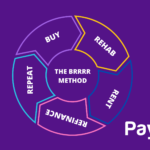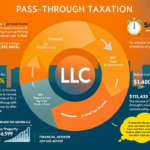Understanding Real Estate CPAs
Real estate CPA is a professional who provides accounting and financial services to individuals or businesses related to real estate. They are experts in analyzing, tracking and interpreting data and presenting comprehensive reports for their clients. The need for a real estate CPA arises when there is complexity involved in real estate transactions or investment properties. They help in minimizing taxes, maximizing profits, and ensuring legal compliance with laws and regulations. Additionally, they also advise on various financial aspects such as valuation, cash flow analysis, and risk management.
A certified public accountant specializing in real estate has a wide range of knowledge and expertise beyond basic accounting principles. They possess in-depth knowledge of tax laws, accounting standards, regulatory requirements, and industry-specific knowledge that applies specifically to the real estate sector.
In the early years of the United States, many people were eager to make their fortunes by investing in land deals. Entrepreneurs seeking funding found investors through personal connections or advertising campaigns in popular publications like newspapers and magazines.
One famous example of promoting land sales was business magnate William Penn’s advertisement campaign during the colonial period. He utilized print ads describing inexpensive prices for land lots near waterways which led to an influx of settlers snatching up these opportunities before others had a chance at them.
Why trust yourself with taxes when you can trust a real estate CPA? Your wallet will thank you.
Reasons Why Real Estate Investors Need a CPA
Real estate investors should consider hiring a certified public accountant (CPA) for efficient financial management. A real estate CPA can assist in tax planning, financial statement preparation, and compliance with regulatory requirements. This can help maximize profits and avoid legal liabilities.
Moreover, a real estate CPA can also provide expert advice in structuring partnerships, real estate transactions, and entity formation. Their expertise in financial management enables investors to make informed decisions in complex real estate deals.
A prime example of the importance of a real estate CPA involves the case of a California real estate investor charged with tax evasion. The investor failed to report rental income for twelve years, resulting in tax fraud accusations. A real estate CPA could have helped prevent this costly mistake by providing accurate tax planning and ensuring compliance with regulatory requirements.
Death and taxes may be the only certainties in life, but with a real estate CPA, at least one can be completely painless.
Tax Planning and Preparation
Real estate investors often overlook the need to consult a certified public accountant (CPA) for tax planning and preparation. However, with the ever-changing tax laws, it’s crucial to have a professional who can help navigate the complexities of tax regulations and optimize tax savings.
An experienced CPA can provide personalized strategies for reducing taxable income, maximizing depreciation deductions, and taking advantage of tax credits. They can also ensure compliance with IRS guidelines and minimize the risk of audit penalties.
Moreover, CPAs can help real estate investors save time by handling all aspects of tax preparation, from record-keeping to filing returns. This allows investors to focus on their core business activities while benefiting from optimized tax savings.
According to a report by Forbes, “Real estate investors who work with a CPA report higher return on investment compared to those who don’t.” Therefore, it’s essential for real estate investors to seek expert advice from a reliable CPA for effective tax planning and preparation.
Accountants are the real estate investor’s wingman, keeping track of the money while the investor goes out and closes deals like a boss.
Accounting and Bookkeeping
As a real estate investor, accounting and bookkeeping are important tasks to manage the financial aspects of the business. It involves organizing financial records, recording transactions, creating financial statements and analyzing financial data. A CPA can assist in these tasks by providing expertise in tax planning, identifying financial risks and ensuring compliance with regulations.
In addition to traditional bookkeeping responsibilities, a CPA can provide strategic guidance on long-term financial planning. This includes analyzing investment opportunities, developing budget forecasts and assessing the impact of potential business decisions on profitability. Additionally, a CPA can offer guidance on cash flow management strategies to avoid potential liquidity issues.
Pro Tip: A CPA’s knowledge and experience in tax laws can save valuable time and money for real estate investors throughout the year and especially during tax season.
Managing cash flow is like walking a tightrope, one misstep and you could end up in debt or drowning in champagne.
Can a CPA assist with cash Flow Management?
Managing cash flow is vital for real estate investors, and a CPA can assist with this. They ensure that inflows and outflows are accurately recorded and tracked, enabling investors to make informed financial decisions. CPAs also aid in the creation of budgets, assessing financial risk, and projecting future investments. With their expertise, they provide valuable insights into maximizing profits, optimizing tax savings, and minimizing expenses. It’s important for investors to have a trusted CPA to manage their funds effectively.
Moreover, cash flow management involves more than just tracking revenue and expenses. It requires a deeper understanding of an investor’s unique financial situation and goals. Factors such as rental income fluctuations or unexpected expenses may impact cash flow – having a CPA who understands these complexities can help mitigate potential financial challenges. They create reports outlining cash flow projections and offering tailored solutions for specific investment needs.
A recent study found that over 90% of successful real estate investors sought the advice of a CPA when making financial decisions. One such example is Donald Trump – before his presidential days, he sought the expertise of CPAs to maximize his real estate investments’ profitability while minimizing taxes paid. Hiring a professional CPA may seem like an extra expense, but it can pay dividends in the long run regarding your investment portfolio’s value.
Why hire a CPA for audit and assurance? Because a mistake in this area can be more expensive than a beachfront home in Malibu.
Audit and Assurance
Real estate investors need to be aware of the importance of audit and assurance. As a crucial step in financial reporting, accurate documentation is essential. Such services like risk assessment, fraud detection, and compliance with legal requirements require competency and professionalism. A Certified Public Accountant (CPA) can provide sound control systems and detailed analysis.
When making investments in real estate, failure to comply with regulations could result in disastrous repercussions such as costly lawsuits or loss of capital. Without reliable financial statements, gaining an investor’s trust can be nearly impossible. Therefore, it’s imperative that real estate investors seek assistance from a CPA who is well-versed in audit and assurance.
Hiring a CPA not only provides a sense of security when dealing with potential investors but also improves decision-making abilities through extensive reporting and analysis. Taking advantage of their expertise will allow for optimal performance in the long run leading to higher investor returns on investment (ROI). Don’t let incompetence risk losing valuable assets; consult with a professional CPA today.
Investing without a CPA is like jumping out of a plane without a parachute – sure, you might make it, but the odds aren’t in your favor.
Investment Planning
Investment planning is a crucial aspect of real estate investing that requires careful consideration and attention. A certified public accountant (CPA) can provide valuable insights into tax planning, financial analysis, and other critical financial aspects of this process.
For instance, a CPA can help investors determine the best structure for their investments to minimize taxes while maximizing profitability. They can also assist with tax compliance issues, including tracking expenses and reporting income. Moreover, CPAs can provide real-time analysis of an investor’s portfolio to identify potential risks and opportunities.
In addition to seeking professional assistance from a CPA, there are other steps investors can take to improve their investment planning process. For example, keeping detailed records of all transactions and maintaining accurate financial statements can provide valuable insights into where investments stand at any given time. Additionally, developing a comprehensive understanding of local market conditions can help investors make informed decisions about when and where to invest.
Ultimately, real estate investors must remain vigilant in their investment planning efforts to ensure they are achieving their goals effectively. Seeking assistance from a qualified CPA is one effective way to stay on top of the many complex challenges associated with this endeavor. With the right tools and insights at their disposal, investors can optimize profitability while minimizing risk in all their real estate ventures.
When it comes to real estate investment, the only time you should avoid hiring a CPA is when you enjoy doing your own taxes as much as a root canal.
When Should You Hire a Real Estate CPA?
Real estate ventures can be complex when it comes to tax and financial implications. To ensure you make informed decisions and maximize your profits, it is wise to consider the expertise of a real estate CPA. Their services may benefit you when faced with legal, financial, or tax issues that could potentially impact the success of your real estate investments.
Real estate CPAs possess a wealth of knowledge on tax incentives and deductions, cost segregation studies, 1031 exchanges, and other financial strategies that can benefit real estate investors. Partnering with a real estate CPA could prove beneficial throughout the life cycle of your investments, including acquisition, management, and disposition, to name a few.
It’s important to note that the optimal time to engage a real estate CPA is prior to beginning any real estate transactions. By consulting with a CPA early on, you can obtain a comprehensive understanding of the tax and financial implications involved in your investment and formulate an effective strategy accordingly.
One real estate investor shared how they had neglected to involve a CPA in their transactions, leading to significant losses due to missed deductions on their taxes. They realized the value of a real estate CPA after partnering with one and discovering previously overlooked tax write-offs.
Should I hire a CPA for starting a Real Estate Business?
Starting a real estate business can be challenging, especially for those who lack financial knowledge or experience running a company. However, hiring the right professional team can enhance your chances of success and make your entrepreneurial journey more comfortable. While there are many professionals with diverse expertise, a real estate CPA can be particularly useful in guiding you through the financial aspects of setting up and running your business.
Working with a real estate CPA from the outset can have advantages such as analyzing deals for acquisition or disposition to ensure proper tax allocation. This expert will also help prepare accurate revenue projections, provide investment strategy advice, and entity selection guidance while mitigating tax risk compliance.
Hiring a reliable real estate CPA is essential because they can provide informed insight on capital gains taxes, offer investment analysis services to strengthen return potential, monitor the finances of your organization including property operations cost analysis to minimize leakages while ensuring profitability. Additionally, having their services ensures that you have accountability partners while maintaining clean accounting books for investors and government entities.
In closing, if you’re thinking about starting up your own real estate agency or are already in the process of doing so – consider employing the services of an experienced real estate CPA to help you navigate challenges that might arise along the way confidently. This expert knows how to organize advantageous investment structures and best manage assets while minimizing risks related to taxation regimes in different jurisdictions. Overall, this should set you on course for creating successful investments while building strong investor relations which translates into corporate growth yielding development opportunities that yield multiples over long-term horizons.
Buying or selling a house is the closest most of us will come to playing a game of chess with real money.
Buying or Selling Real Estate Property
Real estate transactions can be overwhelming without proper guidance. Hiring a real estate CPA can help with complex tax issues and ensure that you have sound financial advice throughout the process. Here are some key considerations for buying or selling real estate property:
| Buying | Selling |
|---|---|
| Reviewing financial documents to assess affordability | Evaluating the property’s market value to determine an optimal sale price |
| Negotiating purchase contracts to get favorable terms and conditions | Counseling on tax implications of selling, such as capital gains and depreciation recapture |
| Providing insight in selecting financing options such as bank loans or ownership transfers | Structuring ways to allocate funds from a sale while minimizing taxes through legal strategies like installment sales or tax-deferred exchanges. |
The adage says, “The devil is always in the detail.” A misstep could lead to adverse consequences from a significant financial loss, legal liabilities, or even both. Involving a real estate CPA earlier in the transaction can help mitigate these risks by ensuring proper planning and identifying potential complications before they arise.
In today’s fast-paced world, it is easy to overlook details when making significant life decisions like buying or selling property. Ultimately, timing may be critical in securing favorable financial outcomes. Suppose you’re considering buying or selling real estate Property? In that case, it’s best not to delay getting expert advice from a real estate CPA who understands all aspects of the transaction—book your appointment today!
Buying new properties is like collecting Pokémon – gotta catch ’em all with the help of a Real Estate CPA.
Expanding your Real Estate Portfolio
Expanding your real estate portfolio can be a lucrative move, but it requires careful planning and financial strategy. A crucial step in this process is knowing when to hire a real estate CPA. These experts can help you navigate the complexities of real estate tax laws and maximize your profitability.
A real estate CPA can assist with everything from property acquisition and management to tax filings and financial planning. They have specialized knowledge that can benefit both seasoned investors and those just starting out.
It’s important to note that not all CPAs specialize in real estate, so it’s worth doing your research to find one that does. Additionally, hiring a CPA early on in the portfolio expansion process can save you both time and money down the line.
According to Forbes, “Real estate transactions are complex,” so having an expert on hand can prevent costly mistakes and ensure compliance with tax regulations.
Managing complex real estate transactions is like walking a tightrope, one wrong move and everything falls apart.
Managing Complex Real Estate Transactions
Real estate transactions can be highly complex, involving a multitude of legal and financial considerations. This is where a Real Estate CPA can come in handy. They not only help with tax planning but also assist in structuring deals to minimize risk and maximize returns.
In managing complex real estate transactions, there are several factors to consider such as structuring the deal, tax implications, financing options, and risk management strategies. A CPA specializes in these areas and can provide valuable insight to navigate through complex transactions. They can recommend the most efficient tax structure while ensuring compliance with all applicable laws.
Compliance is vital when dealing with complex real estate transactions that are highly scrutinized by regulatory bodies. As such, it’s essential to bring aboard a dedicated CPA who has extensive experience handling intricate real estate deals. Their expertise ensures accuracy compliance with monetary regulations while minimizing risk.
A Real Estate CPA once helped an individual construct a deal involving several properties being bought out by different buyers concurrently. The deal meant that each buyer would take 5-10 years to pay with interest while accommodating the seller’s cash flow needs. The CPA advised on how best to structure the payment terms, including provision for annual invoicing by installment payments spread over 15 years and incentive bonuses for early payments – providing for an amicable transaction benefiting both parties involved.
With their deep understanding of tax laws coupled with their accounting expertise, a Real Estate CPA offers invaluable insights into managing complex deals while minimizing potential liabilities – they’re essential assets for any individual or business involved in high-value commercial property.
Just like a marathon runner prepares for a race, real estate investors should prepare for tax season with a CPA as their personal trainer.
Preparing for Tax Season
As a real estate investor or property owner, preparing for tax season can be daunting. But when should you hire a real estate CPA? If you own multiple properties or have complex investments, it’s wise to seek professional help. A qualified CPA can provide valuable advice on tax planning, deductions, and compliance with IRS rules.
By hiring a real estate CPA, you can save time and money in the long run. They can help you maximize your deductions and minimize your tax liability. Plus, they’ll ensure that your assets are structured properly to minimize risk and protect your wealth.
In addition, CPAs stay current with changing tax laws and regulations. They have the knowledge and expertise to navigate complex tax codes and take advantage of any available credits or exemptions.
Don’t wait until the last minute to prepare for tax season! Hiring a real estate CPA early on can give you peace of mind knowing that your finances are in good hands. Don’t miss out on potential savings by neglecting this crucial step in managing your real estate investments.
Choosing the right real estate CPA is like finding a needle in a haystack, but with less chance of getting poked.
How to Choose the Right Real Estate CPA
A Real Estate CPA can assist you in managing your financial, business, and tax matters related to real estate. To find the best CPA for your real estate business, consider their experience, qualifications, and communication skills. Look for a CPA who specializes in real estate and understands the specific nuances of your business.
When choosing a Real Estate CPA, you should also prioritize their qualifications. Look for certifications such as Certified Public Accountant (CPA) or Personal Financial Specialist (PFS). Additionally, consider their experience working with real estate businesses as well as their track record for success and client satisfaction.
To ensure a smooth and effective working relationship with your Real Estate CPA, communication is key. Choose a CPA who can clearly explain complex financial concepts and is always available to answer your questions and provide guidance.
In addition to these factors, consider working with a CPA who has a team of professionals. This allows the CPA to delegate tasks and provide comprehensive services that cater to your specific real estate business needs.
Credentials and experience may be important in choosing a real estate CPA, but let’s be real, we’re all just looking for someone who won’t make our taxes scarier than a haunted house.
Credentials and Experience
A skilled real estate CPA can provide benefits for your business beyond just managing finances. Finding one with the right credentials and experience is essential.
Look for CPA candidates with a Certified Public Accountant (CPA) license, knowledge of current tax laws, and a deep understanding of the real estate market. Make sure to ask potential candidates about their experience with clients similar to you. Furthermore, check if they can assist you in future investments by evaluating potential purchases to ensure a profitable return on investment.
When choosing a CPA, ensure that they are a member of the American Institute of Certified Public Accountants (AICPA). A great way to evaluate their expertise is through client reviews and recommendations. Additionally, find out if they have worked with other businesses in your area to have an idea about their familiarity with local regulations governing property ownership such as zoning laws and property taxes.
One of our clients was struggling with tax debt and came to us for help. Our experienced real estate CPA was able to analyze their financial statements and propose several solutions including restructuring their business model. As a result, we helped them reduce their debt and get back on track financially.
Choosing a CPA with expertise in real estate is like finding a needle in a haystack, except the haystack is made of tax codes and regulations.
Real Estate CPAs Specialize in Real Estate
When choosing a CPA for your real estate business, it is important to look for someone who specializes in the real estate industry. They should be familiar with tax codes and regulations specific to real estate, as well as understand the unique financial aspects of the industry. A specialized CPA can provide customized advice and strategies that can help save you money and reduce risks.
Additionally, a specialized CPA can offer valuable insights into the various tax benefits available to real estate investors such as depreciation, 1031 exchanges, and capital gains taxes. They can also assist with accounting tasks such as bookkeeping and financial analysis to ensure your business is running efficiently.
One example of the importance of specialization in real estate is the recent Tax Cuts and Jobs Act (TCJA) which introduced new tax laws affecting businesses in many industries, including real estate. A CPA specializing in real estate would have a better understanding of how these changes impact the industry, allowing them to provide accurate advice on tax planning.
According to Forbes, “Specialized CPAs have a better understanding of the unique needs for different types of clients… being knowledgeable about certain industries allows them to develop more nuanced recommendations that are tailored specifically for their clients.” Therefore, it’s crucial to find a CPA who has experience working with businesses similar to yours within the real estate industry.
Find a real estate CPA who won’t judge your questionable property investments or taste in wallpaper.
Personal Compatibility
Finding the right real estate CPA involves more than just their qualifications and experience. Personal Compatibility is an essential factor to consider. The accountant you choose should understand your needs, personality, and communication preferences. Building a proper relationship between yourself and your CPA can help ensure smooth communication and milestones achieved.
It is critical to select a CPA who has an excellent track record of working with real estate clients. They should be familiar with the industry’s laws, regulations, tax codes, and deductions that can reduce your tax liability. Moreover, they should have innovative solutions to meet specific needs related to acquisitions, dispositions or syndications. But before signing the checks of paying the taxes or fees for their services they provided, assess whether you two are compatible enough to work on a long-term basis.
You want your real estate CPA to be someone who shares your vision for personal and business growth- an individual who puts themselves in their client’s shoes instead of just delivering work without empathy or understanding.
I once had a friend whose previous account never responded to email or phone calls promptly; he didn’t listen to her ideas about where she wanted to take her business. Consequently, My friend always felt like she wasn’t heard and eventually found herself unappreciated by her accountant. Their relationship ended badly altogether.
Some people have great communication skills, while others make real estate jargon sound like a foreign language. Choose your real estate CPA wisely.
Communication Skills
As you search for the perfect real estate CPA, communication skills should be at the top of your list. Your CPA should be able to communicate effectively and coherently, as they will be answering complex questions and providing advice on tax laws. Poor communication can lead to costly misunderstandings and mistakes.
It’s imperative that your CPA clearly explains technical jargon in a way that you can understand. They should listen carefully and show interest in learning about your unique situation so they can provide tailored advice. They should also be prompt in responding to your calls or emails.
When searching for a CPA with excellent communication skills, consider their reputation and experience dealing with clients from similar industries or fields as yours. A professional who is confident when speaking is more likely to create a comfortable working relationship with clients.
In addition to excellent verbal communication skills, written communication is equally important. Your real estate CPA must be able to present complex calculations and financial statements in an understandable manner.
Don’t settle for a subpar real estate CPA because of poor communication skills; it could cost you big time in the long run. Choose an experienced professional who takes pride in effective communication to best serve your financial needs today and throughout the future, ensuring success for all parties involved.
Your real estate CPA should make you feel like you’re getting a great deal, not like you’re buying a car from a dealership.
Fees and Billing Methods
As a real estate investor, it’s crucial to find the right CPA for your needs. One vital factor to consider is fees and billing methods.
Here are six points to keep in mind when choosing a real estate CPA:
- Hourly rates: Some CPAs charge by the hour for their services. This could work well for you if you have a small portfolio of properties or only require minimal assistance.
- Flat fees: Other CPAs may offer flat fee pricing packages. This can be advantageous if you need ongoing support, as it removes the guesswork from budgeting your accounting costs.
- Retainer agreements: Retainer agreements typically involve paying a monthly fee that covers specific services agreed upon by both parties. If you’re looking for continuous support from your CPA, this could be an excellent option.
- Project-based billing: If you require assistance with one-time projects or transactions, discuss project-based billing options with your potential CPA.
- Additional fees: Be aware of any additional charges, such as document preparation fees or travel expenses. These can quickly add up and impact your overall accounting costs.
- Payment terms: Before engaging with a CPA, make sure you understand their payment terms upfront. Ensure that they align with your expectations.
While pricing plays an essential role in deciding on the right real estate CPA firm, it’s not everything. Factors such as reputation, experience, and expertise should also be considered before making your final decision.
Interestingly, according to Accounting Today’s 2022 Top 100 Firms report, CohnReznick ranks as one of the nation’s leading real estate service providers.
Dave is a seasoned real estate investor with over 12 years of experience in the industry. Specializing in single-family residential real estate, David’s strategic approach combines market analysis, financial acumen, and a deep understanding of urban development trends to maximize investment returns.










